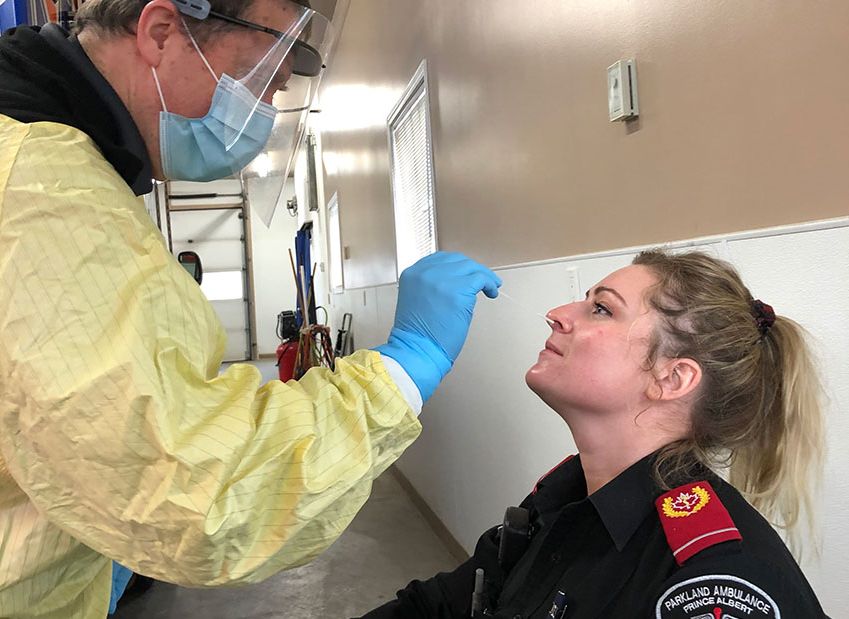The Saskatchewan Health Authority (SHA) said many paramedics will be adding peer-to-peer COVID-19 swabbing to their daily work demands.

According to a statement, the contracted and SHA-operated emergency medical services (EMS) offered to take on the role in an effort to improve overall efficiency and lessen the burden on the public health system to test this group of health-care workers.
SHA said this will also improve turnaround time for staff being away from work and reduce the potential of an ambulance being taken out of service.
“The impact of taking an ambulance out-of-service is a potential risk to patients due to a delay in an ambulance arriving when they call 911,” read the statement. “As well as a provider risk for a delay in getting the necessary COVID-19 swab and test results when needed.”
Almost 500 paramedics in 86 ambulance services in the province are trained to do COVID-19 swabbing, the SHA said.
The health authority added that many paramedics are positioned in close proximity to either an SHA lab or a COVID-19 testing site where swabs can be dropped off for testing.
Provincial government officials said there were 246 new cases in the daily update on Friday, with the overall case count for the province growing to 11,475 since the first case was reported in March.
To date, 379,378 COVID-19 tests have been carried out in Saskatchewan.

Questions about COVID-19? Here are some things you need to know:
Symptoms can include fever, cough and difficulty breathing — very similar to a cold or flu. Some people can develop a more severe illness. People most at risk of this include older adults and people with severe chronic medical conditions like heart, lung or kidney disease. If you develop symptoms, contact public health authorities.
To prevent the virus from spreading, experts recommend frequent handwashing and coughing into your sleeve. They also recommend minimizing contact with others, staying home as much as possible and maintaining a distance of two metres from other people if you go out. In situations where you can’t keep a safe distance from others, public health officials recommend the use of a non-medical face mask or covering to prevent spreading the respiratory droplets that can carry the virus. In some provinces and municipalities across the country, masks or face coverings are now mandatory in indoor public spaces.
For full COVID-19 coverage from Global News, click here.



Comments